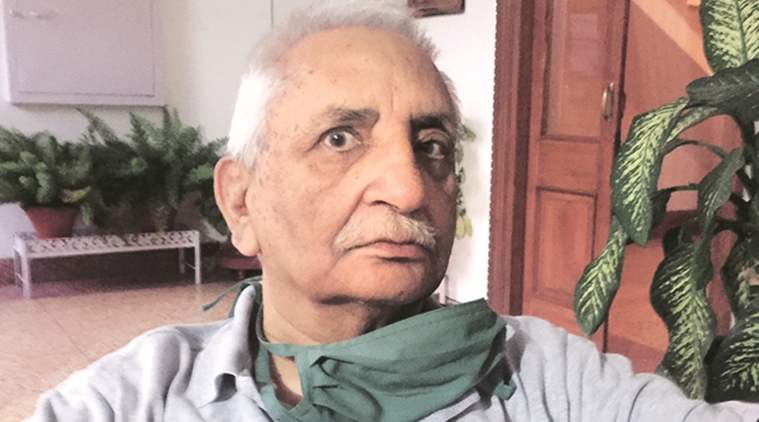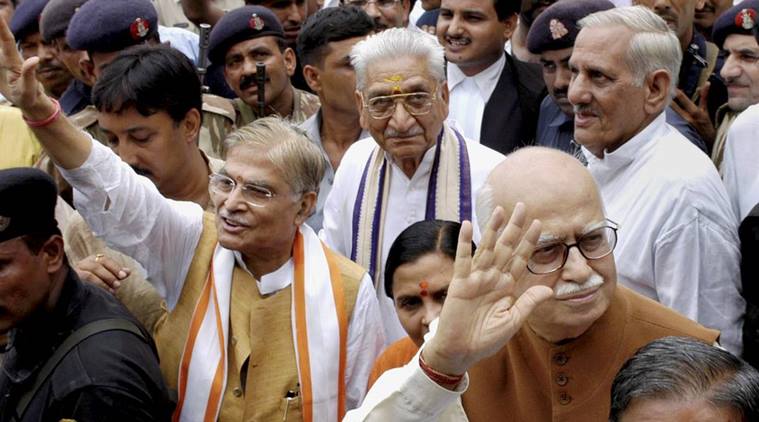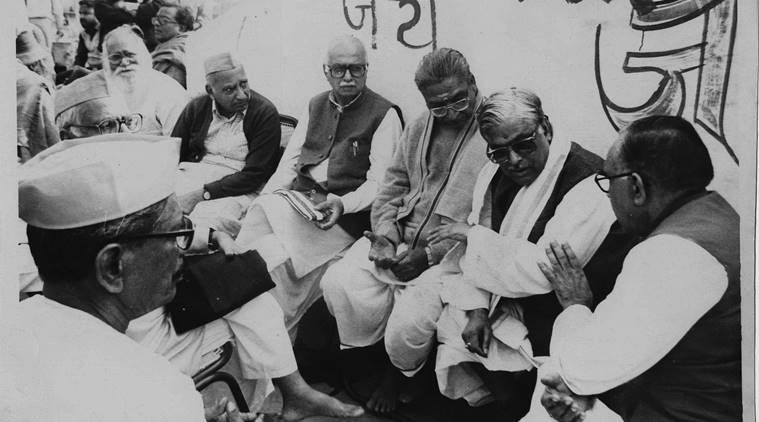
[ad_1]
, Dipankar Ghose
| Chandigarh, New Delhi |
Updated: October 1, 2020 7:12:04 am
 The Babri verdict comes nearly 28 years after the structure was razed by a mob in Uttar Pradesh, leading to communal riots. Of the 49 accused, 32 are alive today
The Babri verdict comes nearly 28 years after the structure was razed by a mob in Uttar Pradesh, leading to communal riots. Of the 49 accused, 32 are alive today
“I found it was a civil conspiracy, I still believe in it. From all the evidence produced before me, it was clear that the Babri Masjid demolition was meticulously planned… I remember Uma Bharti categorically took responsibility for it. It was not an unseen force that demolished the mosque, human beings did it,” Justice Manmohan Singh Liberhan told The Indian Express on Wednesday.
The Liberhan Commission, set up in 1992 to probe the Babri Masjid demolition, had, in its report submitted in 2009, pointed to the involvement of senior RSS and BJP leaders, including L K Advani, Murli Manohar Joshi and Uma Bharti, and connivance of the then Uttar Pradesh government. “They either actively or passively supported the demolition,” it said.
The Commission said the mobilisation of “kar sevaks” was neither “spontaneous or voluntary” but “orchestrated and planned”. The report named over 60 people – including senior BJP leaders Advani, Joshi, Bharti and A B Vajpayee, RSS and VHP leaders, bureaucrats – as “culpable” for “leading the country to the brink of communal discord”.
“My findings were correct, right, honest, and free from fear or any other bias,” Justice Liberhan said. “For posterity, it is a report that will provide an honest account of what took place and how. It will be part of history,” he said.
He, however, refused to comment on the court’s decision. “I will not comment on the judge or the court or the CBI investigation. I believe everyone does his job honestly. The court has the right to differ, there can be no dispute about its power or working,” he said.
 Justice Liberhan at his home in Chandigarh. (Express photo)
Justice Liberhan at his home in Chandigarh. (Express photo)
“All of them, Advani, Vajpayee, appeared before me, and what I found, I presented in my report, but they can’t be a witness against themselves… Some of them took responsibility for the demolition. Uma Bharti categorically claimed responsibility… now, if the judge says she is not responsible, what can I do… From the evidence presented before me and the accounts of witnesses, not just me, anybody could have reasonably concluded that it was a premeditated action,” he said.
His brief, he said, was to find out who demolished the mosque, what were the circumstances leading to it, as well as the fact of the demolition itself. “Some may have had a pious intent, but for politicians, it was one of the most important means to generate votes in their favour,” he said, adding that it was watershed moment for the BJP.
The 82-year-old former Chief Justice of Andhra Pradesh and Madras high courts said the demolition could have been prevented with administrative planning and action. He had made this point in his report, saying that no preventive steps were taken to forestall the demolition, or prevent the spread of communal hatred.
 In this 2005 photo, BJP leaders LK Advani, MM Joshi and Uma Bharti in Raebareli. (PTI Photo)
In this 2005 photo, BJP leaders LK Advani, MM Joshi and Uma Bharti in Raebareli. (PTI Photo)
The Liberhan report said “cadres of the RSS, Bajrang Dal, VHP, BJP and Shiv Sena along with their leaders” were present at the spot at the time of the demolition. “They either actively or passively supported the demolition. The other protagonists of the temple construction movement including preachers, sadhus and sants, administrative and police officers, media and kar sevaks were also present. In the process, all acts were directed for or to acquire political power and thereby achieve the politically desirable results,” it said.
The report said the then Kalyan Singh government in UP had “intentionally” allowed “the protagonists of the movement and the kar sevaks to run the administration and to govern Ayodhya and Faizabad”. “Kalyan Singh… repeatedly refused to utilise the services of paramilitary forces till after the demolition was complete. He had full knowledge of the events and their implications, as they unfolded, and his reluctance to take any substantive action, for that reason is inexplicable,” it said.
The Commission said this was not a case where the government was “powerless against the fury of the mobs”. “This was, on the contrary, a pitiable and shameful case where the chief minister and his associates, within and outside the government, within and outside his party, within and outside the Parivar, actively hindered and obstructed the small pockets of sanity and common sense which might have prevented the demolition of the disputed structures or the ensuing riots,” it said.
READ | Babri Masjid case verdict: Special judge presided over trial since 2015, got 3 extensions
 BJP leader Uma Bharti celebrates the demolition of Babri Masjid with party colleague MM Joshi at Ayodhya (Express Photo by Kedar Jain)
BJP leader Uma Bharti celebrates the demolition of Babri Masjid with party colleague MM Joshi at Ayodhya (Express Photo by Kedar Jain)
On the role of the bureaucracy, the Commission said: “It is too obvious that the administration could not, and did not, put any restraints on the kar sevaks or on the kar seva, nor regulated it, out of fear of reprisals from the government.”
The report said the Ram Janaki Rath Yatra by Advani in the run-up to December 1992 was done to “mobilise people to construct the temple at the disputed site”. “It was the leadership of the BJP, a national political party, which came forward for mobilising the people on the Ayodhya temple issue, along with Mathura and Kashi. It challenged the constitutional secularism by calling it pseudo-secularism,” it said.
On December 6, 1992, the Commission noted, Advani, Joshi and others who were present at the spot made “feeble requests” to the kar sevaks to come down from the disputed site. “One could have reasonably perceived that the demolition of the disputed structure was not possible from the top of the domes. No request was made to the kar sevaks not to enter the garba griha or not to demolish from inside the domes. This selective act of the leaders itself speaks of the hidden intentions of one and all being to accomplish the demolition of the disputed structure,” it said.
READ | Mumbai riot victims on Babri demolition verdict: ‘Justice not done… verdict unfortunate’
 BJP leaders L K Advani, M M Joshi having a meeting soon after Kar Sewak started the demolition of Babri Masjid (Express photo by R K Sharma)
BJP leaders L K Advani, M M Joshi having a meeting soon after Kar Sewak started the demolition of Babri Masjid (Express photo by R K Sharma)
The Commission was also critical of the then central government, headed by Congress’s Prime Minister P V Narasimha Rao. “The central government had been day-dreaming that the state government would go against its election manifesto,” it said.
The Commission said Champat Rai, now general secretary of the Ram Janmabhoomi Trust that is in charge of the construction of the temple at Ayodhya, had “declared that guerrilla shaily (strategy) would be adopted on 6th of December 1992. This declaration was published and not contradicted or countered by any leader of the movement or political party.”
“Prognosis of the evidence leads to the conclusion that the mobilisation of the kar sevaks was neither spontaneous and voluntary. It was orchestrated and planned,” it said.
📣 The Indian Express is now on Telegram. Click here to join our channel (@indianexpress) and stay updated with the latest headlines
For all the latest India News, download Indian Express App.
[ad_2]
Source link